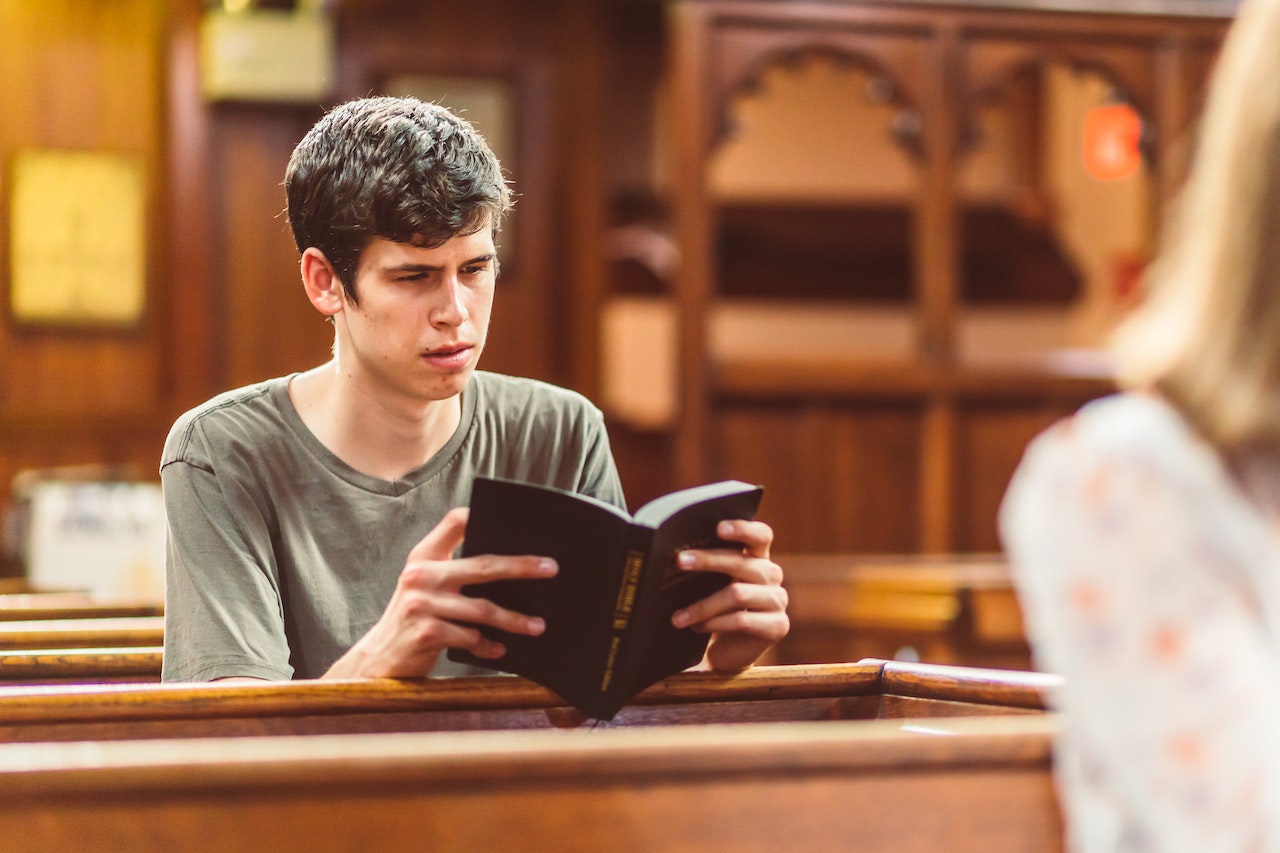Orthodox Christianity, as a traditional branch of Christianity, holds certain beliefs and practices that shape the way its followers approach marriage. The question of whether Orthodox individuals can marry individuals from other religions is a topic of interest and importance. In this introduction, we will explore the Orthodox Church’s stance on interfaith marriages and the considerations that come into play.
Table of Contents
Interfaith Marriages in Orthodox Christianity: Understanding the Challenges and Opportunities
Can Orthodox Marry Other Religions?
Interfaith marriages have become increasingly common in today’s diverse society. People from different religious backgrounds are falling in love and deciding to spend their lives together. However, when it comes to Orthodox Christianity, there are certain challenges and opportunities that need to be understood.
Orthodox Christianity, with its rich traditions and deep-rooted beliefs, places a strong emphasis on the importance of faith and religious unity within marriage. The Orthodox Church teaches that marriage is a sacrament, a sacred bond between a man and a woman, and that it should be based on a shared faith in Christ.
This emphasis on religious unity can pose challenges for those who wish to marry someone from a different religious background. The Orthodox Church discourages interfaith marriages, as it believes that they can lead to spiritual confusion and a weakening of one’s faith.
However, the Church also recognizes that love knows no boundaries and that people can genuinely fall in love with someone from a different religious background. In such cases, the Church encourages open and honest dialogue between the couple, as well as seeking guidance from a spiritual father or a priest.
One of the challenges that interfaith couples may face is the question of how to raise their children. The Orthodox Church teaches that children should be raised in the Orthodox faith, and this can create tension if one parent belongs to a different religious tradition. It is important for the couple to have open and respectful discussions about their beliefs and to find a way to raise their children in a way that respects both traditions.
Another challenge that interfaith couples may face is the question of participation in religious rituals and practices. Orthodox Christianity has a rich liturgical tradition, with specific prayers, fasting periods, and sacraments. It is important for the couple to find a way to navigate these practices and to respect each other’s beliefs and traditions.
While interfaith marriages in Orthodox Christianity can present challenges, they also offer opportunities for growth and understanding. When two people from different religious backgrounds come together, they have the chance to learn from each other and to deepen their own faith.
Interfaith marriages can also be a source of inspiration for others in the Orthodox community. They can serve as a reminder that love and understanding can transcend religious differences and that it is possible to build a strong and loving relationship even when faced with challenges.
In conclusion, interfaith marriages in Orthodox Christianity can be both challenging and rewarding. While the Church discourages interfaith marriages, it also recognizes the power of love and the importance of open and honest dialogue. With understanding, respect, and guidance from the Church, interfaith couples can navigate the challenges and create a strong and loving relationship that honors both their faith and their love for each other.
Navigating Interreligious Relationships: Insights from Orthodox Tradition

Can Orthodox Marry Other Religions?
Navigating interreligious relationships can be a complex and challenging journey, especially when it comes to marriage. In the Orthodox tradition, there are certain guidelines and considerations that need to be taken into account when contemplating a union with someone from a different religious background. While the Orthodox Church encourages unity and understanding among all people, it also places a strong emphasis on maintaining the integrity of its own teachings and practices.
One of the key principles in Orthodox Christianity is the belief in the sacrament of marriage. According to Orthodox theology, marriage is not just a legal contract or a social arrangement, but a sacred union blessed by God. It is seen as a reflection of the relationship between Christ and the Church, and as such, it is expected to be entered into with a deep commitment to the Orthodox faith.
When it comes to interreligious marriages, the Orthodox Church recognizes the importance of love and respect between partners, but it also acknowledges the potential challenges that may arise from differences in religious beliefs and practices. The Church advises its members to marry within the Orthodox faith whenever possible, as this ensures a shared spiritual foundation and a common understanding of the sacraments and traditions.
However, the Church also recognizes that love knows no boundaries and that sometimes, individuals may find themselves falling in love with someone from a different religious background. In such cases, the Orthodox Church encourages open and honest communication between partners, as well as a willingness to learn and understand each other’s beliefs.
In order to marry someone from a different religious background, the Orthodox Church requires that the non-Orthodox partner be baptized in a Christian faith that is recognized by the Church. This is seen as a way to ensure that both partners share a common understanding of the Christian faith and its teachings. Additionally, the non-Orthodox partner is expected to respect and support the Orthodox partner’s commitment to their faith, and to be open to raising any children in the Orthodox tradition.
It is important to note that the Orthodox Church does not encourage or endorse interfaith marriages with partners who do not share a Christian faith. This is because the Church believes that a shared faith is essential for the spiritual well-being of the couple and any potential children. The Church also recognizes that interfaith marriages can be challenging and may lead to conflicts and difficulties in the long run.
In conclusion, while the Orthodox Church encourages unity and understanding among all people, it also places a strong emphasis on maintaining the integrity of its own teachings and practices. When it comes to interreligious marriages, the Church advises its members to marry within the Orthodox faith whenever possible, but recognizes that love can sometimes transcend religious boundaries. In such cases, open communication, mutual respect, and a shared commitment to the Christian faith are essential for a successful interreligious marriage.
Theological Perspectives on Interfaith Marriages in Orthodox Christianity
Can Orthodox Marry Other Religions?
When it comes to matters of the heart, religion can sometimes complicate things. For Orthodox Christians, the question of whether they can marry someone from a different faith can be a source of confusion and concern. In this article, we will explore the theological perspectives on interfaith marriages in Orthodox Christianity.
Orthodox Christianity is known for its strong adherence to tradition and its emphasis on the teachings of the early Church fathers. The Orthodox Church views marriage as a sacred union between a man and a woman, a reflection of the relationship between Christ and His Church. This understanding of marriage shapes the Orthodox perspective on interfaith marriages.
According to Orthodox theology, marriage is not just a legal contract or a social arrangement, but a sacrament. It is a means through which God’s grace is bestowed upon the couple, enabling them to grow in love and holiness. This understanding of marriage as a sacrament raises important questions about the compatibility of different faiths.
The Orthodox Church recognizes that marriage between two Orthodox Christians is ideal, as it allows for a shared faith and a common spiritual journey. However, the Church also acknowledges that not all marriages can be between two Orthodox Christians. In cases where one partner is not Orthodox, the Church permits the marriage but with certain conditions.
One of the conditions for an interfaith marriage in the Orthodox Church is that the non-Orthodox partner must be a baptized Christian. This requirement ensures that both partners share a common understanding of the Christian faith and can participate in the sacramental life of the Church. It also reflects the belief that marriage should be rooted in a shared commitment to Christ.
Another condition for an interfaith marriage in the Orthodox Church is that the couple must agree to raise their children in the Orthodox faith. This requirement is based on the belief that children should be raised within the Church and receive the sacraments of baptism, chrismation, and Holy Communion. It also recognizes the importance of passing on the Orthodox tradition to future generations.
While the Orthodox Church permits interfaith marriages under certain conditions, it does not encourage them. The Church recognizes the challenges that can arise when two people from different faiths come together in marriage. It acknowledges that differences in religious beliefs and practices can create tension and conflict within the relationship.
However, the Church also recognizes that love and understanding can transcend these differences. It encourages couples in interfaith marriages to engage in open and honest dialogue about their beliefs and to seek guidance from their priest or spiritual father. It emphasizes the importance of mutual respect and support in navigating the challenges that may arise.
In conclusion, the Orthodox perspective on interfaith marriages is rooted in the belief that marriage is a sacrament and a reflection of the relationship between Christ and His Church. While the Church recognizes the challenges that can arise in interfaith marriages, it permits them under certain conditions. It emphasizes the importance of a shared commitment to Christ and the raising of children in the Orthodox faith. Ultimately, the Orthodox Church encourages couples in interfaith marriages to approach their relationship with love, understanding, and a willingness to grow together in faith.
Building Bridges: Practical Tips for Orthodox Individuals Considering Marriage with People of Other Religions
Can Orthodox Marry Other Religions?
When it comes to matters of the heart, religion can sometimes complicate things. For Orthodox individuals, the question of whether they can marry someone from a different religious background is a common concern. While there are certainly challenges to navigate, building bridges and finding common ground is not only possible but can also lead to a beautiful and fulfilling relationship.
First and foremost, it’s important to remember that love knows no boundaries. While religion plays a significant role in our lives, it shouldn’t be the sole determining factor in choosing a life partner. Love and compatibility are what truly matter, and if you find someone who shares your values and respects your beliefs, their religious background shouldn’t be a deal-breaker.
That being said, it’s crucial to have open and honest conversations about religion early on in the relationship. Understanding each other’s beliefs and practices is essential for building a strong foundation. This means discussing how you both envision your future together and how you plan to navigate any potential conflicts that may arise due to religious differences.
One practical tip for Orthodox individuals considering marriage with people of other religions is to focus on shared values. While you may have different religious practices, there are likely core values that you both hold dear. These shared values can serve as a solid basis for your relationship and help you find common ground. By focusing on what unites you rather than what sets you apart, you can create a strong bond that transcends religious differences.
Another important aspect to consider is the role of family and community. Orthodox individuals often have close-knit communities and strong family ties. It’s crucial to involve your families in the conversation and seek their support and understanding. While they may have concerns or reservations initially, showing them that your partner respects and supports your religious beliefs can go a long way in easing their worries.
In some cases, interfaith couples may choose to raise their children in both religions or find a compromise that respects both traditions. This can be a delicate balance, but with open communication and a willingness to find common ground, it is possible to create a harmonious environment for your children to grow up in.
It’s also important to remember that relationships are a journey of growth and learning. Being in a relationship with someone from a different religious background can provide an opportunity for personal and spiritual growth. By embracing the differences and learning from each other’s traditions, you can enrich your own understanding of faith and deepen your connection as a couple.
In conclusion, while marrying someone from a different religious background may present challenges, it is certainly possible for Orthodox individuals to build successful and fulfilling relationships with people of other religions. By focusing on shared values, having open and honest conversations, involving families and communities, and embracing the opportunity for growth, love can truly conquer all. So, if you find yourself falling for someone from a different religious background, don’t let that be a barrier to love. Instead, let it be an opportunity to build bridges and create a beautiful and inclusive partnership.
Conclusion
In conclusion, the Orthodox Church generally discourages interfaith marriages but may grant permission under certain circumstances. The decision ultimately lies with the bishop, who considers factors such as the religious commitment of the non-Orthodox partner and the potential impact on the Orthodox spouse’s faith.
For licensing reasons, we must provide the following notice: This content was created in part with the help of an AI.


